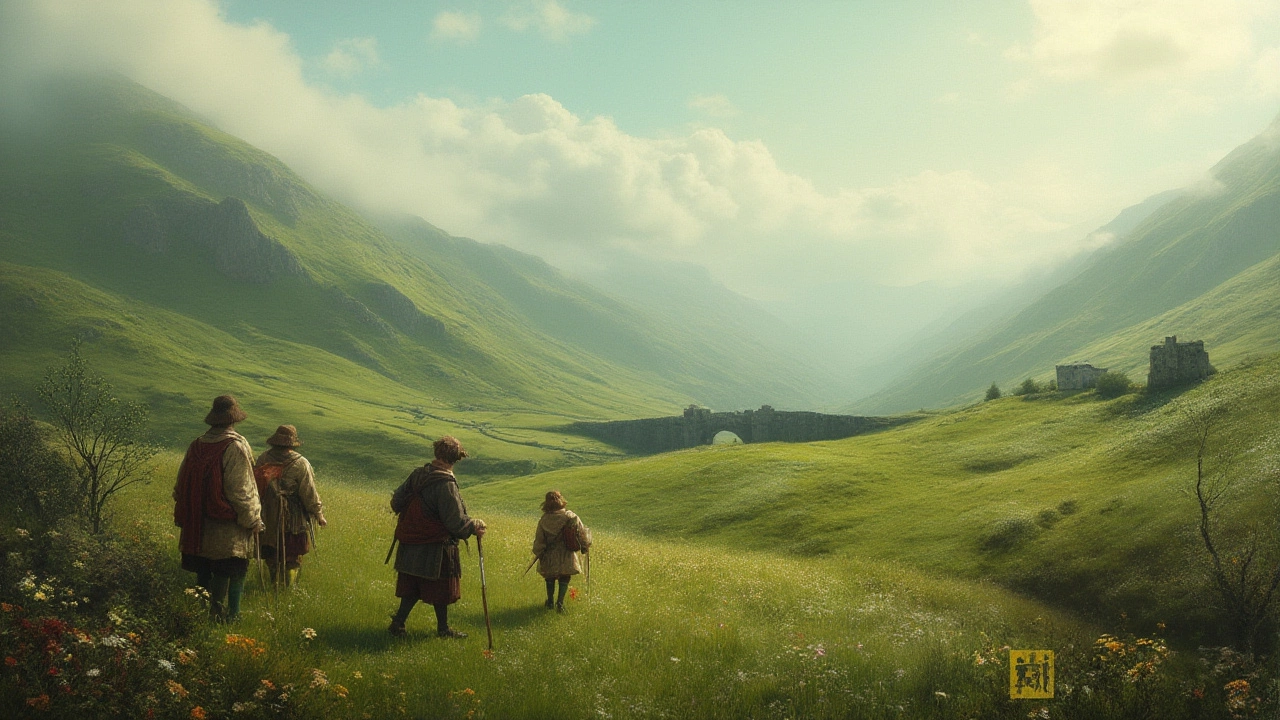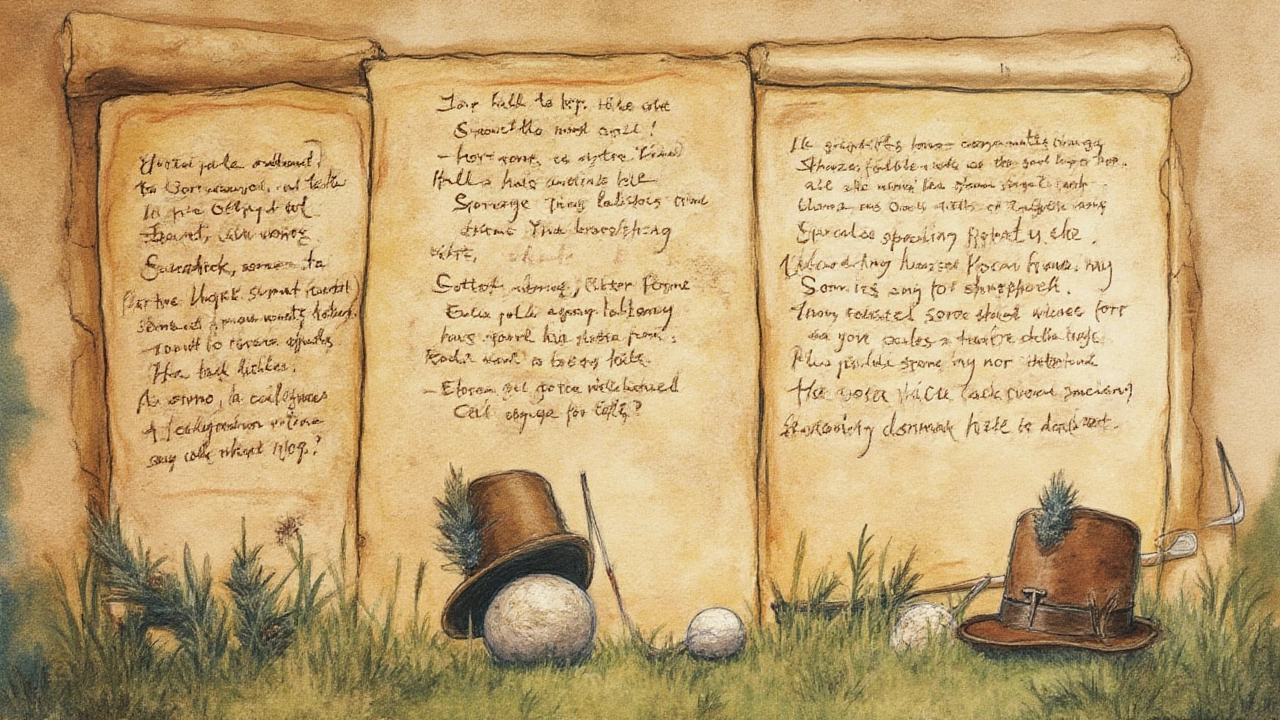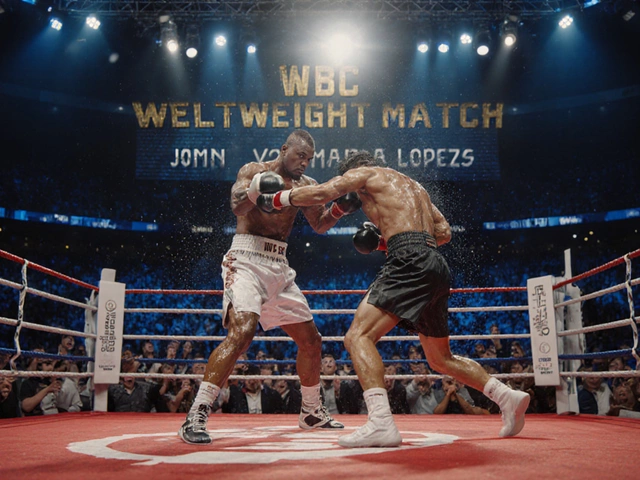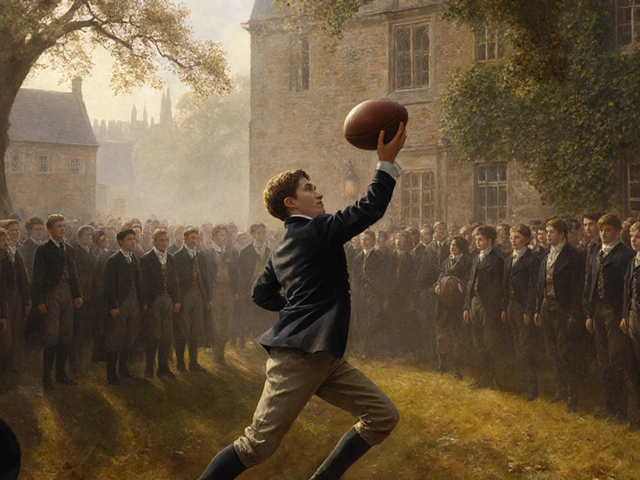
General Sports July 8, 2025
Why is Golf Called Golf? The Surprising History Behind the Name
Saying 'golf' out loud has a weird kind of charm, hasn’t it? But if you stop and think about it, golf isn’t your standard word. It’s neither fancy nor ugly, just sort of there—humble but packed with centuries of character. People drive themselves nuts trying to figure out its roots. Some say it’s an acronym, others claim it’s an old slang word, but let’s set the record straight and dig into the mix of language, myth, and rolling Scottish hills that turned a stick-and-ball pastime into a worldwide obsession, starting with its name.
The Real Roots: Why is Golf Called Golf?
Forget what you’ve heard about golf standing for “Gentlemen Only, Ladies Forbidden.” That’s a cheeky myth, cooked up to troll newcomers and has zero basis in history (and honestly, would you want to join a club that actually used that slogan?). The real origin is much simpler and yes, more ordinary—but weirdly, that makes it cooler.
The accepted tale goes like this: Golf comes from the old Scottish word “gouf” or “gowf,” which was used way back in the Middle Ages. This word is believed to have spun off from the Dutch word “kolf” or “kolve,” meaning “club” or “bat.” Why Dutch? Because Scotland traded barrels of wool and beer with the Netherlands, and language swapped hands along with goods. Over time, “kolf” merged with Scottish pronunciations and became “gouf.” Not exactly dramatic, but proof that words evolve just as clumsily as sports. Golf first pops up in parliamentary records in 1457, when King James II banned it—apparently, folks were skipping archery practice for a round on the links. Talk about humble beginnings—imagine being outlawed for playing a game with a club and a feathery ball.
If you dig into old dictionaries—Samuel Johnson’s 1755 dictionary, for instance—you’ll find “golf” as “a play in which the ball is struck with a bat or club, to put it into a hole.” Direct and practical, just like a Scotsman arguing with the wind on a rainy green. So, in a nutshell, golf was called golf because of a mash-up of Dutch and Scottish, not because of snobbery or some clever acronym.
From Gowf to Golf: How the Word Evolved
Let’s talk about language changing shape. Imagine medieval villagers pronouncing “gowf” with a thick Scottish burr while sheep graze nearby and the wind howls in from the North Sea. The earliest written reference—dated 1457—wasn’t a celebration, but a ban. Parliament records (yes, politicians were grumpy even back then) mention “ye fut bal and ye golf” as distractions from important military training.
By the early 16th century, “gowf” was getting plenty of use. It wasn’t a highbrow, upper-class term. Golf clubs like St Andrews were being set up on public land, and anyone with decent aim and fewer chores could join in. By the 1700s, folks had settled on the spelling “golf,” likely because typewriters and British printers hated weird spellings. Everyday Scots still said “gowf”—a hint that the word’s sound and spelling have always been a moving target.
Most modern European languages call the game golf or something close to it—golf in French, golfe in Portuguese, and even golf in Swedish. All roads seem to lead back to those muddy Scottish links, with just enough continental influence to keep things interesting. It’s a simple word, but it rolled across borders as smoothly as a well-hit putt.

Wild Myths and Odd Explanations
Golf’s name has attracted some wacky theories. That famous sexist acronym (“Gentlemen Only, Ladies Forbidden”) is probably the most common, but you’ll also hear people joke that golf stands for “Game Of Life and Frustration” or “Go Out, Lose Friends.” All nonsense, of course, but you can’t blame people for making stuff up—the game itself invites a little mischief.
Some claim the word has ancient Gaelic roots (it doesn’t). Others think it’s Roman or even Persian (also no). The acronym theory only dates back to the 20th century and is a bit of modern folklore. Official records, dictionaries, and history books don’t list any use of those acronyms until after the game was already famous. Even with loads of digging, you won’t find a single medieval document using “G.O.L.F.” as an acronym.
What’s genuinely funny is that golf is just one of many quirky sport names that have spawned urban legends. Take soccer—another invention of British slang—or cricket, which is just as mysterious. If you want to remember one thing, remember this: real names nearly always start with real words. “Gouf” meant you grabbed a bat and hit a ball. Simple, no fuss, no secret codes. Yet, these myths make good jokes at the 19th hole.
Golf in Scotland: Where the Word Became a World Phenomenon
It’s almost impossible to talk about why golf is called golf without talking about Scotland’s sky, grass, and stubborn pride. The sport as we know it—18 holes, clubhouses, dress codes—sprouted on Scottish soil. But so did the word. Early golf was played on sand dunes just outside seaside towns like St Andrews. The word travelled as the game spread. By the 1600s and 1700s, “golf” was on the lips of everyone from royal courtiers to village lads hitting rocks with sticks.
Historic records show that Mary, Queen of Scots, loved the game (and may have caused scandal by playing it just days after her husband’s murder). King James IV bought golf clubs in 1502. By the Victorian era, golf wasn’t just a Scottish pastime—the English, Irish, and American elite caught the bug and exported the sport (and word) around the globe. It made its Olympic debut in 1900, with only two countries showing up: France and the USA. Not exactly a global phenomenon yet, but definitely on the rise.
Let’s throw in some stats for trivia night. According to the R&A (the sport’s founding body), as of 2024 there are over 38,000 golf courses worldwide, with the US alone having more than 16,000. Scotland, with just over 550 courses, still boasts the most golf courses per person anywhere on Earth. Even with all that international growth, the word “golf” is still used everywhere—proof that some words travel well, even when accents and rules change.
| Country | Number of Courses | Golfers per Course |
|---|---|---|
| USA | 16,100 | 1,583 |
| Scotland | 550 | 9,085 |
| Japan | 2,290 | 4,927 |
| England | 2,230 | 13,243 |
If you stroll through the streets of St Andrews or wander the Bristol downs, you’ll hear golfers toss the word “golf” around like it’s been around forever. And in a way, it has—at least since Parliament tried to ban it all those years ago. Today, more people probably know the word golf than know the difference between a 9-iron and a sandwich. Next time someone tosses a weird golf acronym your way, you’ve got the real story in your pocket.




